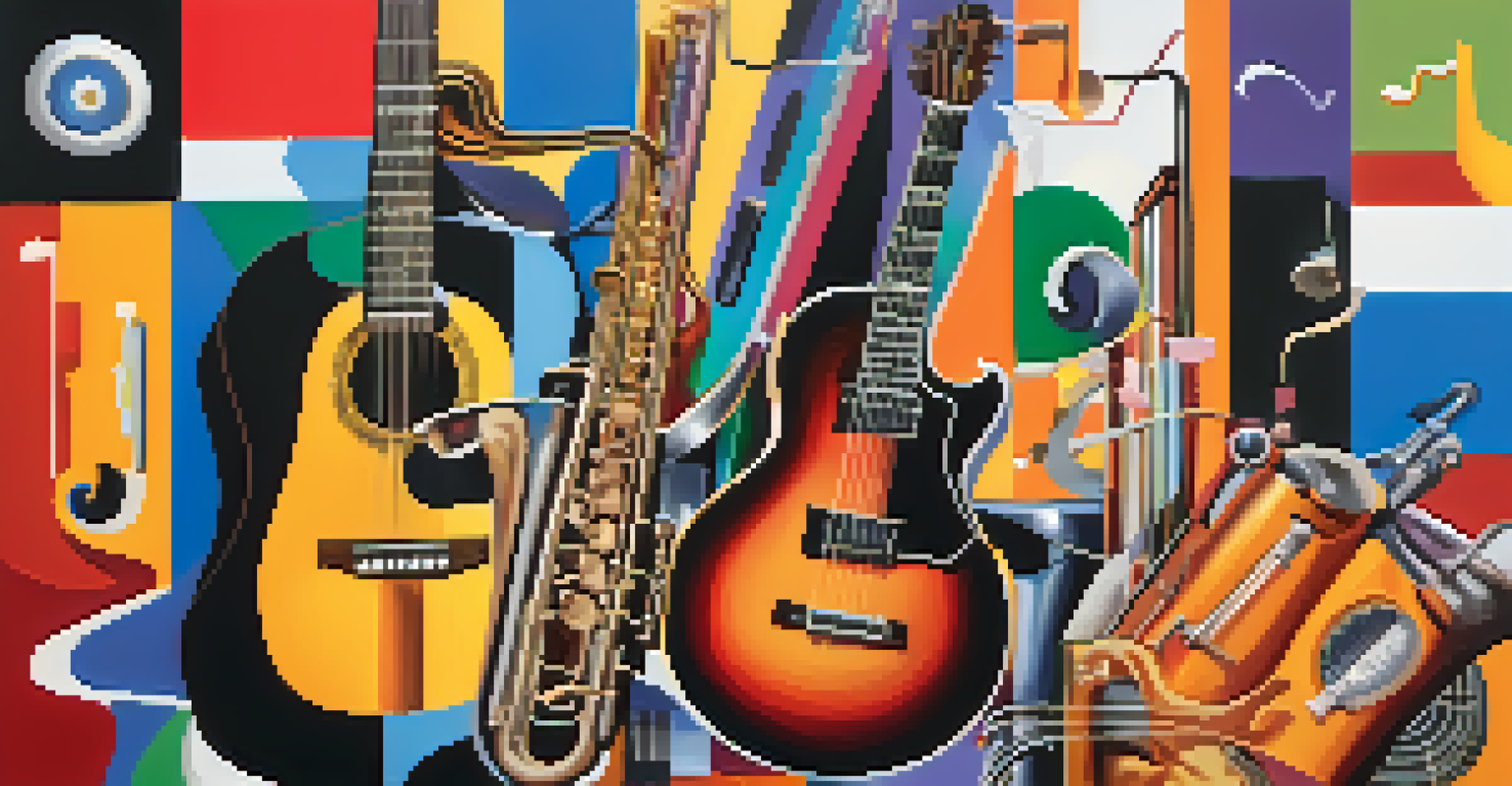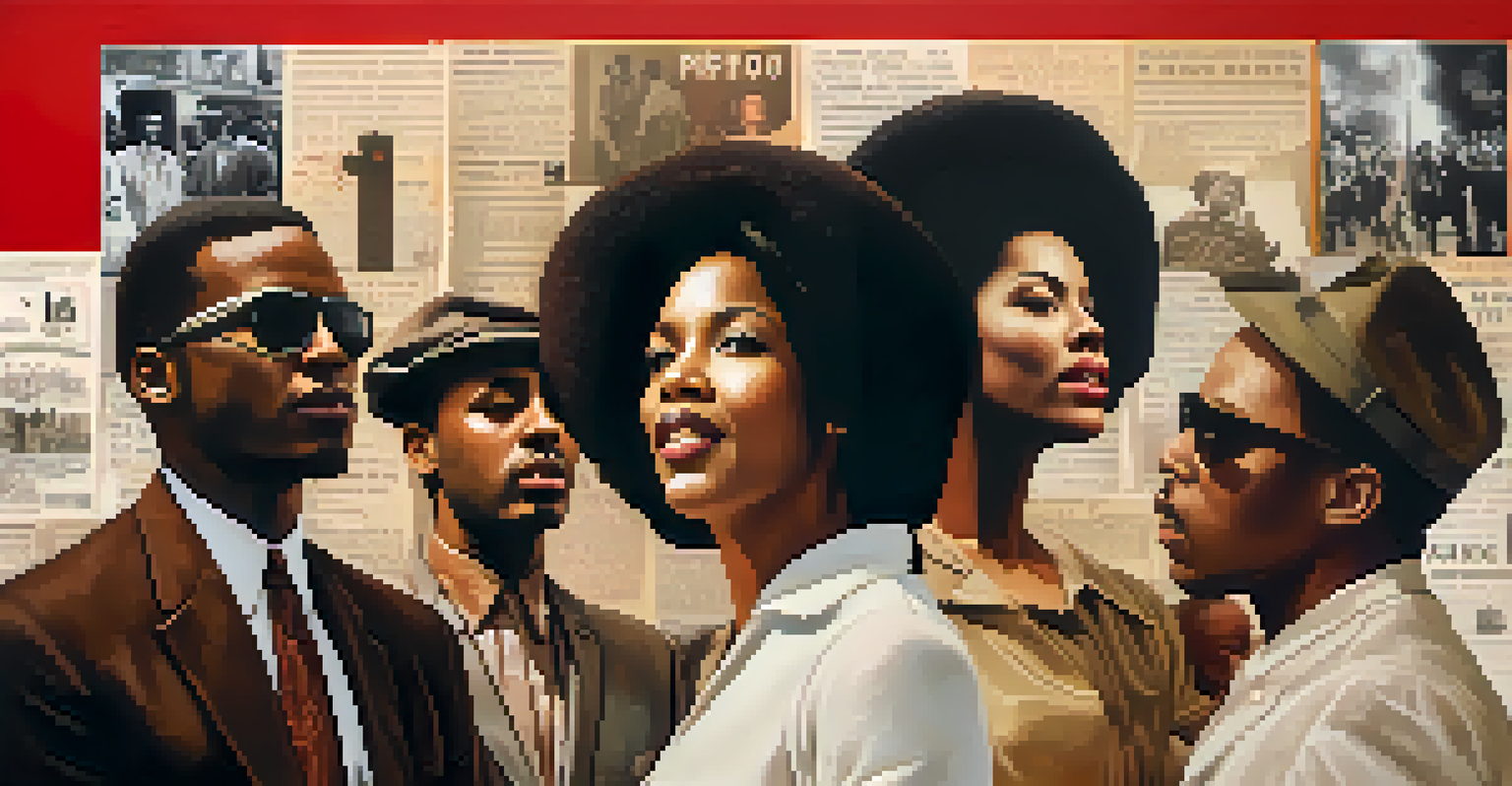The Role of Historical Context in Music Critique

Historical Context: The Foundation of Music Critique
Historical context refers to the social, cultural, and political circumstances surrounding a piece of music. Understanding this backdrop can dramatically change how we interpret a song or composition. For instance, a protest song from the 1960s resonates differently when viewed through the lens of civil rights movements compared to today’s climate.
Music is the shorthand of emotion.
When critics analyze music, they often consider the environment in which the artist created their work. This allows for a deeper appreciation of the artist's intentions and influences. For example, knowing that Beethoven composed during a time of great political upheaval enriches our understanding of his symphonies.
Thus, the historical context acts as a lens through which we can better understand not just the music itself, but also its impact on society. Without acknowledging this, critiques can miss essential nuances that make a piece truly significant.
Cultural Influences in Music Creation
Every piece of music is a product of its culture, reflecting the values, struggles, and innovations of the time. For instance, the emergence of jazz in the early 20th century can be linked to the African American experience and the Harlem Renaissance. Critics who overlook these cultural ties may fail to grasp the full essence of the genre.

Moreover, cultural shifts often lead to the evolution of musical styles. The rise of hip-hop in the late 20th century is a prime example, showcasing not only artistic expression but also the socio-political commentary of urban life. Critics who ignore these elements may render their analyses superficial.
Historical Context Shapes Music Meaning
Understanding the historical backdrop of music enhances our interpretation and appreciation of its significance.
Understanding these cultural influences not only enhances our critiques but also helps us appreciate the diversity of music across different eras. It connects us to the collective human experience that music embodies.
The Impact of Political Climate on Music
Political climates can significantly shape the themes and messages found in music. Songs written during wartime often express feelings of loss, defiance, or hope, reflecting the sentiments of society. For instance, Bob Dylan's 'Blowin' in the Wind' captures the existential questions of the civil rights era, making it a timeless anthem.
The purpose of music is to unite us in a common experience, to connect us with ourselves and each other.
Critics who consider the political context can better understand why certain songs resonate with audiences or spark movements. This perspective allows for a more nuanced critique, highlighting the artist's role as both a creator and a commentator on their society.
By acknowledging the political backdrop, we not only enrich our understanding of the music but also recognize its power to inspire change and foster dialogue.
Technological Advances and Music Evolution
Technology plays a pivotal role in the creation and dissemination of music. The advent of the phonograph in the late 19th century revolutionized how music was consumed, allowing for broader access and appreciation. Critics examining music from this era must consider how these technological changes influenced both artists and audiences.
As technology continues to evolve, so do the methods of music production and distribution. The rise of digital platforms has transformed how we experience music, leading to new genres and styles. Critics who stay abreast of these changes can offer more relevant insights into contemporary works.
Cultural Influences Drive Musical Evolution
Music reflects the cultural values and experiences of its time, which are crucial for a comprehensive critique.
Understanding the impact of technology on music is essential for a comprehensive critique. It allows us to see the relationship between artist, medium, and audience, and how this dynamic shapes the music we hear today.
Influence of Genre on Music Critique
Genres often carry specific connotations and expectations that can influence critiques. For example, classical music is frequently associated with high culture and sophistication, while pop music might be viewed as more commercial and accessible. Recognizing these biases is crucial for fair assessments.
Critics should strive to approach each genre on its own terms, considering its unique characteristics and cultural significance. This means understanding the conventions of genres like punk, country, or electronic music to avoid unfair comparisons.
By appreciating the nuances of different genres, critics can provide richer, more informed critiques that honor the diversity of musical expression.
The Role of Personal Experience in Music Interpretation
Personal experiences shape how individuals connect with music, influencing their interpretations and critiques. A song that evokes nostalgia for one person may feel entirely different to another based on their unique life experiences. This subjectivity is an essential aspect of music critique.
Critics should acknowledge their biases and reflect on how their personal histories inform their perspectives. This transparency can lead to more authentic and relatable critiques, as it allows readers to understand the critic’s viewpoint better.
Political Climate Influences Music Themes
The political environment shapes the messages in music, allowing critics to better understand its societal impact.
Furthermore, inviting personal narratives into critiques can foster a deeper connection with audiences. It reminds us that music is a shared experience, enriched by our diverse backgrounds and stories.
The Future of Music Critique in Historical Context
As we move forward, the role of historical context in music critique will continue to evolve. New generations of critics will bring fresh perspectives, influenced by their cultural and technological landscapes. This adaptation will ensure that critiques remain relevant and resonate with contemporary audiences.
Moreover, the increasing accessibility of music through digital platforms allows for a broader range of voices in music critique. Diverse perspectives will enhance our understanding of music's role in society, reinforcing the importance of historical context.

Ultimately, embracing historical context in music critique not only enriches our understanding but also celebrates the vast tapestry of human experience that music represents. As we listen and critique, we engage in an ongoing dialogue that connects us across time and space.